Elliot Grainge Talks First Year As CEO of Atlantic: ‘Good Music, Good Songs, Good Artists Are Forever’
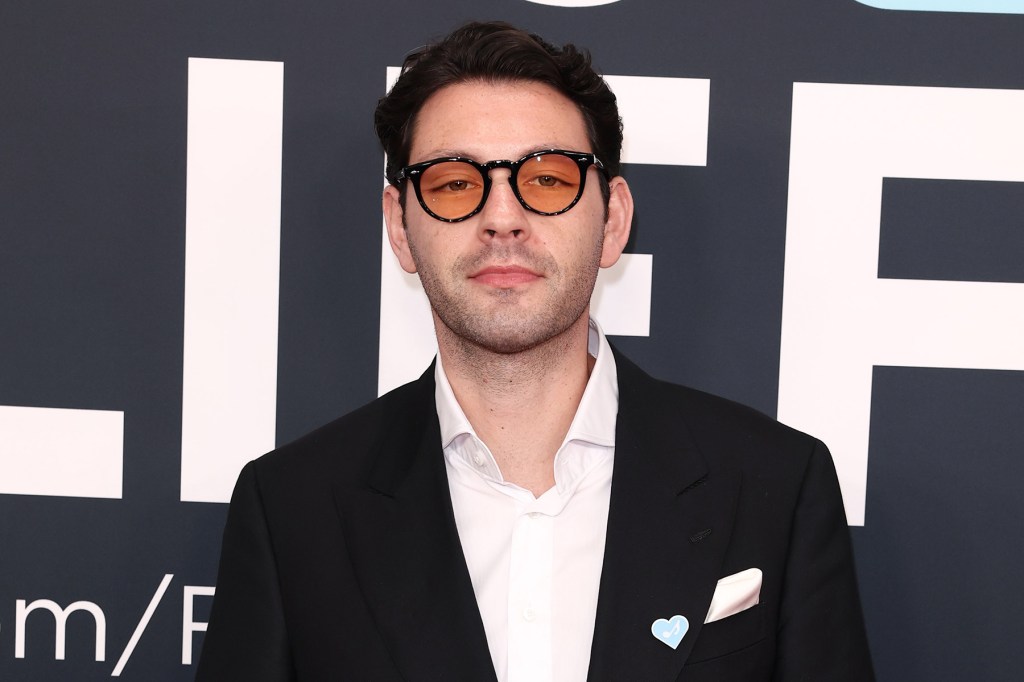
It’s been exactly one year and one day since Elliot Grainge became chairman/CEO of the Atlantic Music Group. At the time, it was a move that shocked many in the industry — Grainge was just 30 years old, had only a year of experience within the major label system, and was replacing a longtime respected leader in Julie Greenwald. Not to mention the fact that his music industry pedigree, as the son of one of the industry’s most powerful men in Universal Music Group chairman/CEO Lucian Grainge, loomed large over him.
One thing detractors couldn’t take away from the younger Grainge, however, was that he knew how to make a song go viral. As founder/CEO of his own independent label, 10K Projects, of which he sold a 51% stake to Warner Music Group in 2023, Grainge and his team achieved a string of digital hits with songs like “In Ha Mood” by Ice Spice, “Sunday Best” by Surfaces, “Miss The Rage” by Trippie Redd, “Lemonade” by Internet Money, “Mad At Disney” by Salem Ilese and more. He was early to identify and champion the SoundCloud rap scene, and hit his stride during the pandemic lockdowns with TikTok anthems.
Still, in a traditional label world of radio promotion campaigns and corporate red tape, success at AMG did not feel guaranteed for the young executive.
One year later, his vision for Atlantic Music Group — which includes Atlantic Records, 10K Projects, 300 Entertainment, Roadrunner and Fueled by Ramen — is starting to take shape. During his tenure, Grainge has overseen a series of sizable layoffs and restructures to remake the major in his image. Today’s Atlantic is more digitally-focused, with a smaller staff and a number of 10K top brass installed at the top, like Zach Friedman as COO and Tony Talamo as general manager. (The two previously served as 10K’s co-presidents and also provided the indie with digital marketing services through their own firm Homemade Projects.)
It’s hard to deny the success. In the last year, Atlantic’s sagging current market share, which had fallen from 9.16% at the end of 2021 to 5.24% as of mid-year 2024, has improved to 7.75% (with the addition of 10K’s 1.51%) through the end of September 2025, and Grainge’s regime has broken still-emerging Atlantic artists like Ravyn Lenae, Alex Warren and The Marías to new heights. In the last two weeks, two different Atlantic signees have held the No. 1 spot on the Billboard 200 with Breach by Twenty One Pilots and Am I The Drama? by Cardi B. “APT.” by ROSÉ and Bruno Mars and “Azizam” by Ed Sheeran have furthered the success of already-cemented stars. Clairo and Hilary Duff have just joined the fold.
Several of those artists were already on the roster before Grainge joined, but since he has taken the helm, there has been a measurable upward shift in the company’s performance and a number of chart hits.
To talk through his first year as the Atlantic CEO, and how he envisions the future of labels, Grainge sat down for an interview for Billboard’s new music business podcast, On the Record. Excerpts from the conversation are below. (Disclosure: this writer worked at 10K Projects from 2020 to 2021.)
Watch or listen to the full episode of On the Record on YouTube, Spotify or Apple Podcasts here, or watch it below:
SoundCloud rap was such a defined online scene while it existed. I’m wondering, do you think that local scenes are still strong in 2025 or have they basically all migrated to niche online spaces?
Local scenes are, and have been, historically, incredibly important. They will continue to be important. I think sonically, you can taste something that came out of southern Florida in 2014 to 2018-2019. You can taste that that moment. I think maybe now today, less so. After the pandemic, it really pushed artists to, instead of start their first two or three concerts in the local venue, 100-200 cap, now what they’re doing is they’re waiting for the larger cap to try their first concert, and they’re able to get there by building a fan base online slightly quicker than they were.
The challenge that we saw after the pandemic was that when you don’t do your 10,000 hours in tiny venues and you’re then put on a giant stages, it’s very intimidating with a large learning curve.
I agree with you. It’s been great, and it’s also been not so great, where artists were having incredible streaming moments, online moments. But they weren’t able to actually touch fans. They weren’t able to go out to that sort of 18 month period pandemic worldwide. They weren’t able to perform their song and touch fans. So I think that was very, very difficult.
I feel like there was this time period of early TikTok, which I think we exited now, 2019-2023-ish, where you were seeing a lot of one hit wonders created overnight. Exiting the pandemic has been a challenge for these artists.
I would agree. It’s funny. If you look at the artists that are now established over the last 12-18, months, we look at the Sabrina Carpenter‘s or the Chappell Roan‘s, these are artists that — talk about 10,000 hours. They were signed almost five, six, seven years ago, and they were really releasing music and touring before the pandemic, and during the pandemic. And if you look at their success now, and their consistency and their fan base, it shows you now it’s taking several years of artist development for the fans to really connect and take artists to that top tier. I think a big focus that we’re trying to do at the moment is really stay true, be very patient with artist development. It can take several years, and that’s okay.
But I imagine that makes it really hard as a label to know when it’s time to cut an artist or when its time to keep investing. What kind of conversations are you having about that inside of Atlantic? How long should you give an artist to develop and how many resources should you give them while they are developing?
The partnership with the artist is very, very important, and as a record label, we have the responsibility to be very patient — to support, not just to fund but to actually support — on a sonic and creative level, and be very, very patient with artists. The answer is: it should take as long as it needs to. Not every artist that labels are fortunate enough to work with is going to break into being a superstar. But we have a responsibility if we’re going to get into business with an artist to be the greatest partners that we can be.
These days is it important to also pursue kind of that middle tier of artists as well? I often hear when talking to majors, people saying, you know, ‘We’re in the business of superstars’ as a selling point, and that’s true, but in this fragmented market, is there also increasing value in having middle tier acts who have strong fans but will never be No. 1?
This middle market has always been there, but it’s definitely gotten larger. If you think about the macro industry and where we are, you have a [100,000] tracks being added to [streaming services] every day. When you look at that, you’re 100% going to see so many layers and tiers of artistry, from test songs, to songs by the A-list stars… The answer is 100% but actually, I look at the middle tier — our team looks at the middle tiers — and thinks that maybe that act is middle tier today, but with the right partnership, the right time, the right support, could an artist from that middle tier be in the superstar category?
You’ve come into Atlantic, a very storied older label. I’m wondering if you examined the history of Atlantic very much and used its history to inform your strategy today?
The history of Atlantic is a very special one. It was started by an entrepreneur, Ahmet Ertegun, and he was, in many ways, a huge disruptive force in the music business from some of the artists that he signed, to how he viewed the business. And so I think if you look at the history of Atlantic, from the very, very beginnings of it to where it is today, it’s been a company that has always backed entrepreneurial spirit. That’s where it’s come from. So I never viewed Atlantic as an old school brand. I always viewed Atlantic as a storied, incredible label. I think it’s — personally, as a fan of music — it’s the best, most diverse little genres of artists of all the labels. So when you marry that history and that entrepreneurial spirit, which we’ve got now, and obviously the greatest team, that’s when we start to see magic happen.
And so it’s been one year, we’ve had to go through a lot of restructure at the company, difficult restructure. But in the last 12 months, as a fan of the music industry and as a fan Atlantic, I can’t remember the last time a record label has had such a quick success with such a great variety of artists. Between Ravyn Lenae, Alex Warren, The Marías, Charli XCX, Twenty One Pilots, Cardi B. Obviously, I’m biased, but I think it’s the most incredible, incredible brand in all of the recorded industry in the world. We’re very, very, very lucky to work in this industry and help bring back some of that entrepreneurial energy to that incredibly historic storied brand. I think we’ve seen great success, and I hope to continue showing success.
Walk me through your first few days at Atlantic one year ago. What were some of your [initial] thoughts?
When we first came in, the two things is we had to examine why Atlantic perhaps had felt a bit tired. I don’t think it did, but a lot of people may have felt that way. You had an incredible leader before. A formidable character who had been there for almost two decade with incredible success. I think it was very difficult for us to examine, not necessarily what the issues were, but how we could build on how good the company was and how we can make it better. We had to look at the most important thing about the company, which is, how are the artists being serviced?
We had to take some very, very difficult decisions. We had to downsize some of the staff, and we invested back into the artists. That was really what we were able to do. It was very, very, very difficult to do that, because it’s incredible people that we had to say goodbye to, but if we didn’t do that, we wouldn’t be able to, as a record label, efficiently allocate our resources to our artists.
So you invested the money from staff cuts back into signing new artists and investing in ones already on the roster?
Sure.
As the restructure continues to take place, where are the areas that you are most interested in investing in on the staff? Is it digital marketing? Research A&R?
We sold half the business [10K Projects] to Warner Music Group, the parent company [of Atlantic]. What we were able to do after we took over Atlantic was move 10K into Atlantic Music Group. Then, we were able to consolidate a lot of the incredible teams together. It allowed us to bring our, I think, best in class, marketing and digital marketing departments. It allowed us to bring an incredible adaptive research team. And we’ve seen incredible results in the first year.
When do you feel like was the dividing line where you felt like you could fully claim some of these wins?
It was a really great collaboration between the new team that was coming in and also the previous team. I think both teams were really able to hold hands during the [transition] period. So I think there’s a lot of shared success with outgoing and incoming teams. For those early wins, it’s very, very hard to say. I think some of these artists that we’ve had recent success with in this year are incredible artists. Would they have had the same success with the previous regime, or another company? I think 100% they are incredible artists. I don’t really look at it like that — like who should get the credit for it. I think if an artist is doing well with a specific label or a specific team, not worth looking into it. I think it’s great. It’s excellent.
You’ve worked with a lot of viral internet hits, but also with songs like Alex Warren’s “Ordinary” that have succeeded in a more traditional way with formats like radio. I’m wondering what is the longevity of both of those types of hits? Is that longevity of those two copyrights the same, or is there a different decay rate?
I think good music, good songs, good artists are forever. They are with us. When you go to a wedding, when you go to a birthday and you listen to the music… There could be songs that have been there since the ’50s and ’60s to songs released last month. You could hear them next to each other. I think a song like “Ordinary” by Alex Warren will be in both birthday parties and weddings forever. I’m very, very confident.
I’m sure this quote has come back to haunt you a few times — in an LA Times interview [in 2022] you said that major labels are “a conveyer belt of a hundred other priorities.” I’m wondering, now that you are at a major label, how you feel about that comment?
I don’t remember saying that!
Care to comment?
Absolutely. I would stand by what I have said before. As a result, one of the things that we’re doing at Atlantic is we’re making sure that we are, as I said before, doubling down on the artists that we believe in. Ultimately, I think the last few years with social media, the rhetoric around record labels has been slightly negative, and being on the independent side, and now being on the major side, having experience in both I can tell you a record label is a collective of one to several hundred individuals that love music, love working with artists. They’re human beings. Do they get it right all the time? No, they’re not robots, but yet these are people that care about artistry. These are people that care about doing the business with artists and helping them find not just their voice, but also their audience. So I always hear about the big, bad wolf — the label this, the label that — and that’s fine. That’s how people vent and that’s how people sort of — it’s easy to pass blame on things. I think that’s human nature.
But I think being outside, and now being inside — this is a collective of people from all walks of life, of all ages. They’re working every day, sometimes 70-80 hours a week to just help artists and to work with artists. I’ve learned a lot from being in. I think a lot of my mindset has changed from sitting on the inside of a major label, which is, the respect I have for the industry. It was always there, but I think it’s gone up tenfold because I’m working with so many of these people now. They wake up wanting to help artists. So for me, that’s been really special to see.
Link to the source article – https://www.billboard.com/pro/elliot-grainge-first-year-atlantic-ceo-on-record-podcast/
-
IK Multimedia iRig 2 portable guitar audio interface, lightweight audio adapter for iPhone, iPad and Android smartphones and tablets, with instrument input and headphone/amplfiier outs$49,99 Buy product
-
for Roland JD-990 – the very Best of – Large unique original WAVE/Kontakt Multi-Layer Samples Library$14,99 Buy product
-
AnNafi® Solid Copper & Brass Bugle| US Military Cavalry Horn | Musical Instrument Classic Style |Boy Scout Bugle | Army Military Attack War Command Signal Horn$45,99 Buy product
-
1.5 Meter Length Mandolin Banjo Fret Wire 1.5mm White Copper for Guitar Replacement$13,03 Buy product
-
Costzon 5-String Banjo 24 Bracket with Geared 5th Tuner and Mid-range Closed Handle, Beginner Kit with 420D Oxford Cloth Bag, One Strap, Wiper, 3 Picks$139,99 Buy product






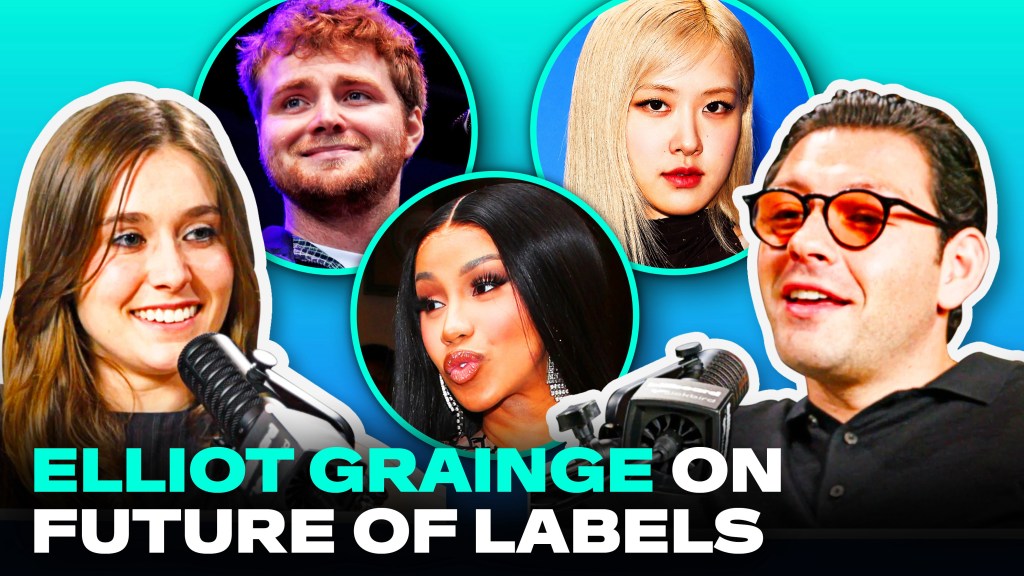
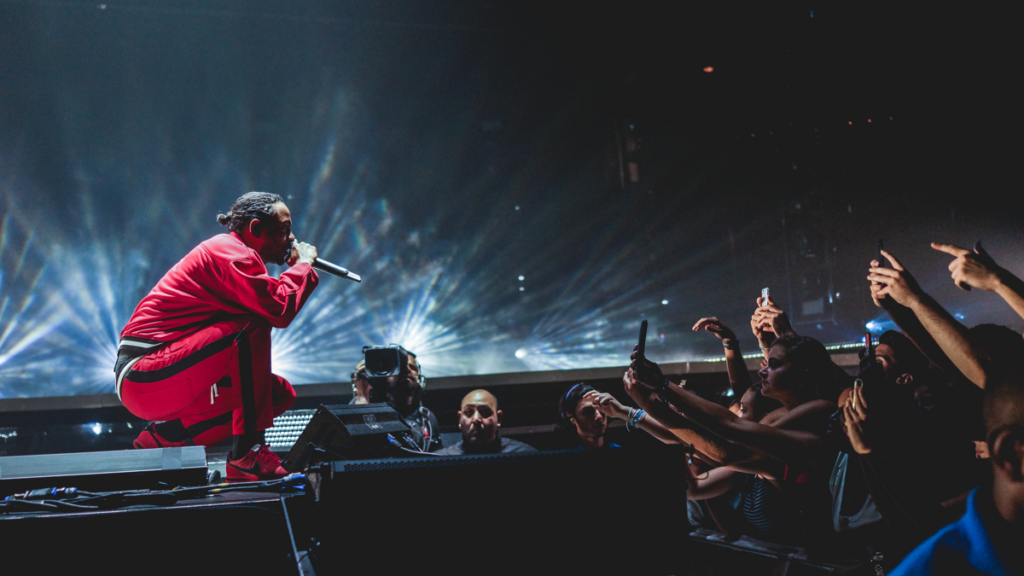
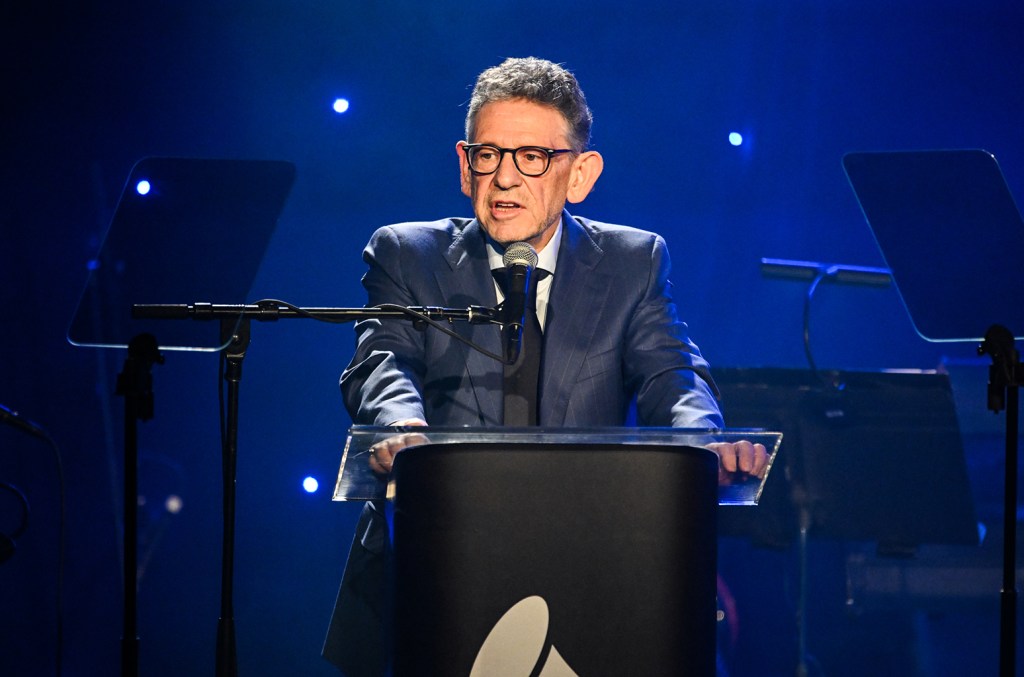
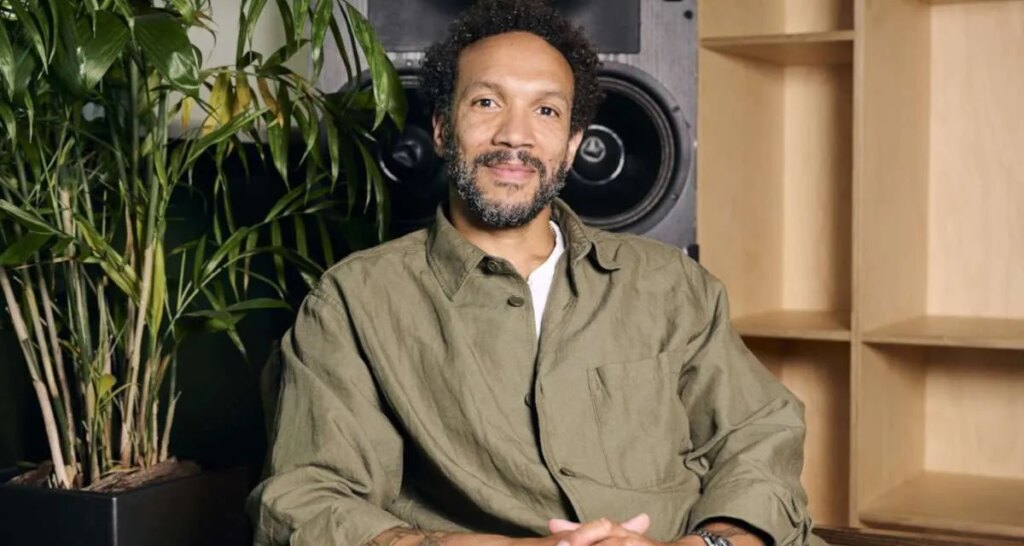
Responses